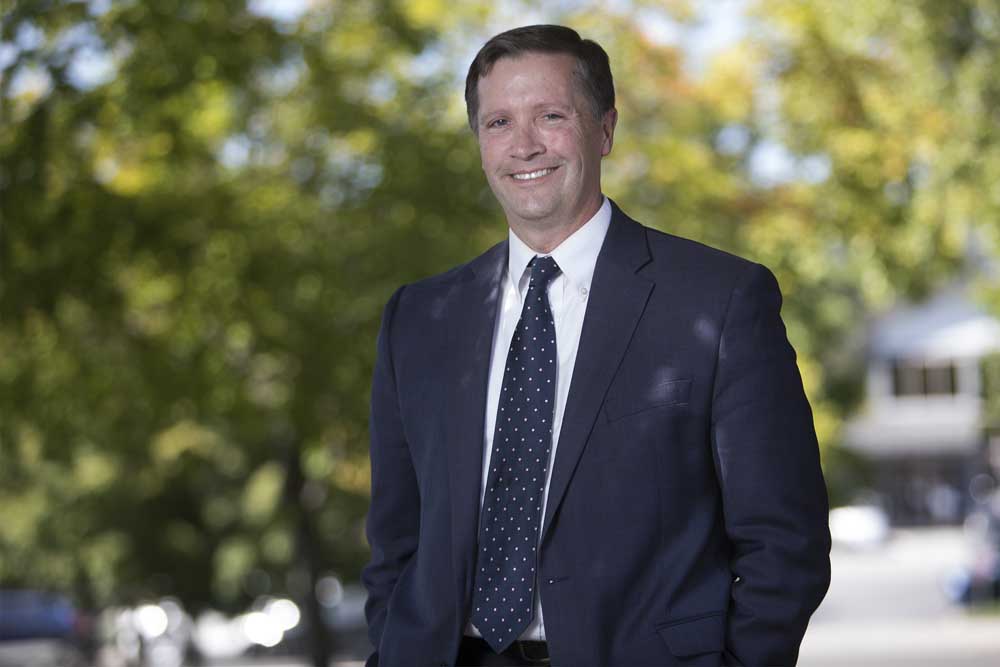Central Oregon drug cases decline as officials debate Measure 110
Published 5:30 am Friday, November 17, 2023

- Deschutes County District Attorney Steve Gunnels is among Central Oregon law enforcement officials who are calling for change as state policymakers debate how best to reform Measure 110, which took effect on Feb. 1, 2021. Measure 110 promised to address Oregon's addiction crisis by funding treatment while making most minor drug possession cases punishable with a $100 fine. “It’s window dressing, and it’s completely ineffective,” Gunnels said.
Criminal cases for possession of hard drugs have declined by 90% over the past four years in Central Oregon, a trend that authorities attribute to Measure 110, the state’s controversial drug decriminalization law.
Some Central Oregon officials argue that the trend does not mean fewer people are addicted to drugs. Instead, they say many people aren’t being held accountable for drug crimes and aren’t getting the treatment that measure proponents promised amid a rise in overdoses driven by the potentially lethal opioid fentanyl.
Trending
Measure 110, which was approved by voters in November 2020, promised to address Oregon’s addiction crisis by funding treatment while making most minor drug possession cases a Class E violation, punishable with a $100 fine.
But those who did not pay the fine rarely face punishment, authorities say. And there is practically no incentive for people — who would otherwise face jail time — to pursue treatment.
“It’s window dressing, and it’s completely ineffective,” said Deschutes County District Attorney Steve Gunnels. “The compliance rate is abysmal.”
Gunnels is among a chorus of Central Oregon law enforcement officials who are calling for change as state policymakers debate how best to reform Measure 110, which took effect on Feb. 1, 2021. Some argue that minor drug possession needs to be reclassified as an A-misdemeanor, accompanied by diversion and accountability-driven treatment programs.
“It’s made our job a lot more difficult,” Redmond Police Chief Devin Lewis said of Measure 110. “We deal with repeat offenders, and there’s not a lot we can do in those cases.”
House Republicans on Tuesday told Gov. Tina Kotek that “Oregon is in crisis because Measure 110 has failed.” The letter coincides with meetings of a joint legislative committee on the state’s addiction crisis.
Trending
The drop in cases in Central Oregon has been precipitous since Measure 110 arrived.
In 2019, there were nearly 1,200 cases involving the possession of methamphetamine or heroin filed in circuit courts in Deschutes, Jefferson and Crook counties. In 2022, that number was 125.
Separately, Deschutes County reported 633 methamphetamine possession cases in 2019 and 62 in 2022.
“In the real world, it means that there are 600 addicts out there who aren’t getting the help they need,” said Gunnels.
Some addiction treatment providers, meanwhile, say that a full repeal of the law would cut off a critical influx of funding that is going toward people who need help.
“I don’t think many people in the system want to fill jails full of people with small amounts of substances,” said Rick Treleaven, chief executive officer of BestCare Treatment Services, which helps people coping with addiction across the region.
Others say there is evidence that more people have sought treatment since Measure 110’s passage, noting that increased funding has allowed for additional facilities where people can get help.
At the addiction medicine clinic at BestCare, referrals and admissions have gone up 239% since July 2022, said Treleaven. And the people who are getting treatment are often staying, he said.
“If they’re in treatment, they’re not causing havoc and crime in the street,” said Treleaven. “Everyone’s better off.”
But some regional law enforcement officials say that the lack of penalties is harming public safety by allowing unhindered drug use and dealing.
Police officers in Redmond made 248 drug-related arrests in 2019, but 46 last year, Lewis said. Meanwhile, officers have reported seeing an increase in overdoses in the community. They are using naloxone — a medication used to reverse the effects of opioids and stop an overdose — at an increasingly high rate, with multiple doses needed to halt an overdose.
Police have used the medication so much that last month the department ran out of its naloxone reserves and had to order more.
Still, Lewis acknowledged that Measure 110 allowed for the opening of Ideal Option, a center where his officers can take people struggling with addiction if they say they need immediate treatment.
Bryan Donahue, a Bend-based defense attorney who has represented people accused of drug crimes, said he doesn’t believe that criminalizing addiction is the best way to fix a public health issue. But he added that the current enforcement mechanism is not often resulting in people changing their habits because they aren’t forced to.
He offered that a potential solution could be escalating penalties, similar to people in driving-related cases who are first charged with a civil infraction and then face a misdemeanor and potentially a felony as they reoffend.
“Personally, I don’t like the idea of criminalizing addiction,” he said. “Not all these people are addicts. I would like to see us fix this system.”
More Information
The Bulletin is partnering with a journalism nonprofit to launch a fundraising initiative to help us cover the fallout of Measure 110 in the coming year.
The fundraiser is administered by the 2023 Local News Fund, a program of the Local Media Foundation, a 501(c)(3) organization affiliated with Local Media Association.
The purpose of the program is to allow independent and family-owned news organizations to solicit tax-deductible donations from their communities for journalism projects that focus on critical local issues. Contributions to this program are tax-deductible to the full extent of U.S. law; please consult a tax adviser for details.
If you would like to support this important work, you can make a tax-deductible donation by texting EOMEDIA to 53-555 or to 202-858-1233 or by clicking www.bendbulletin.com/give.







